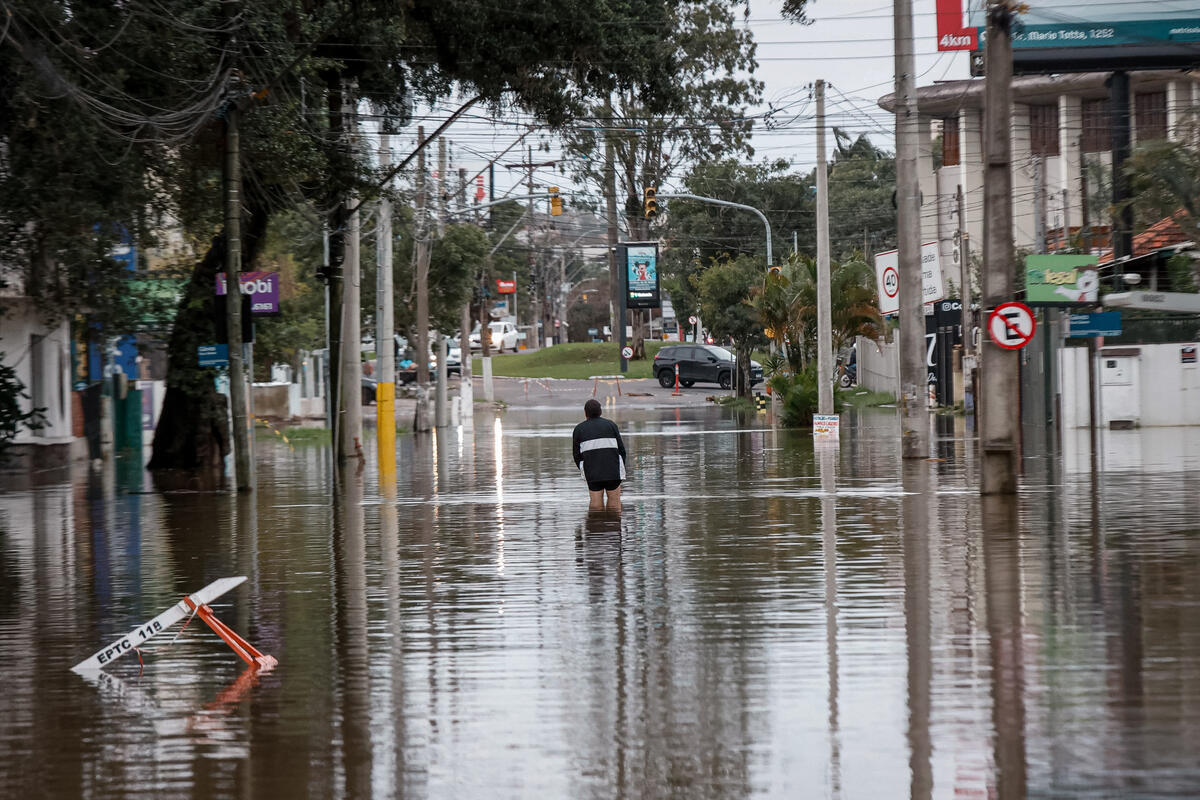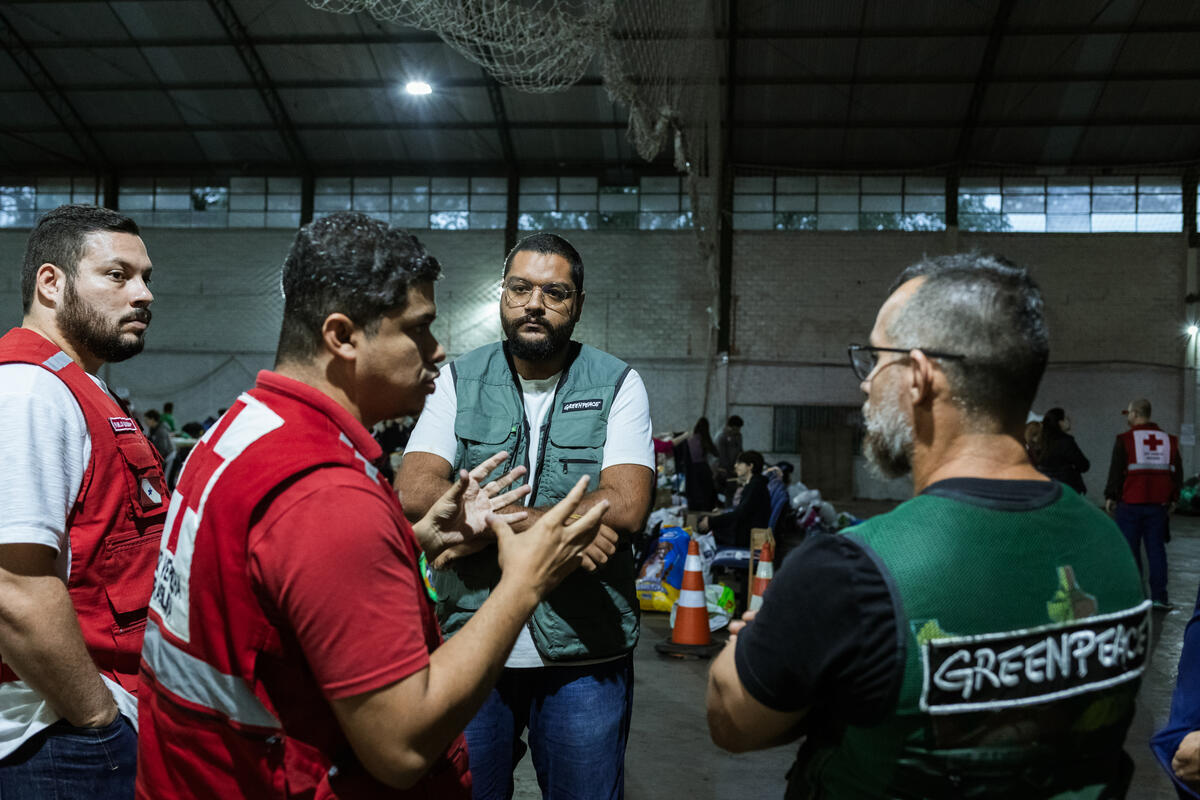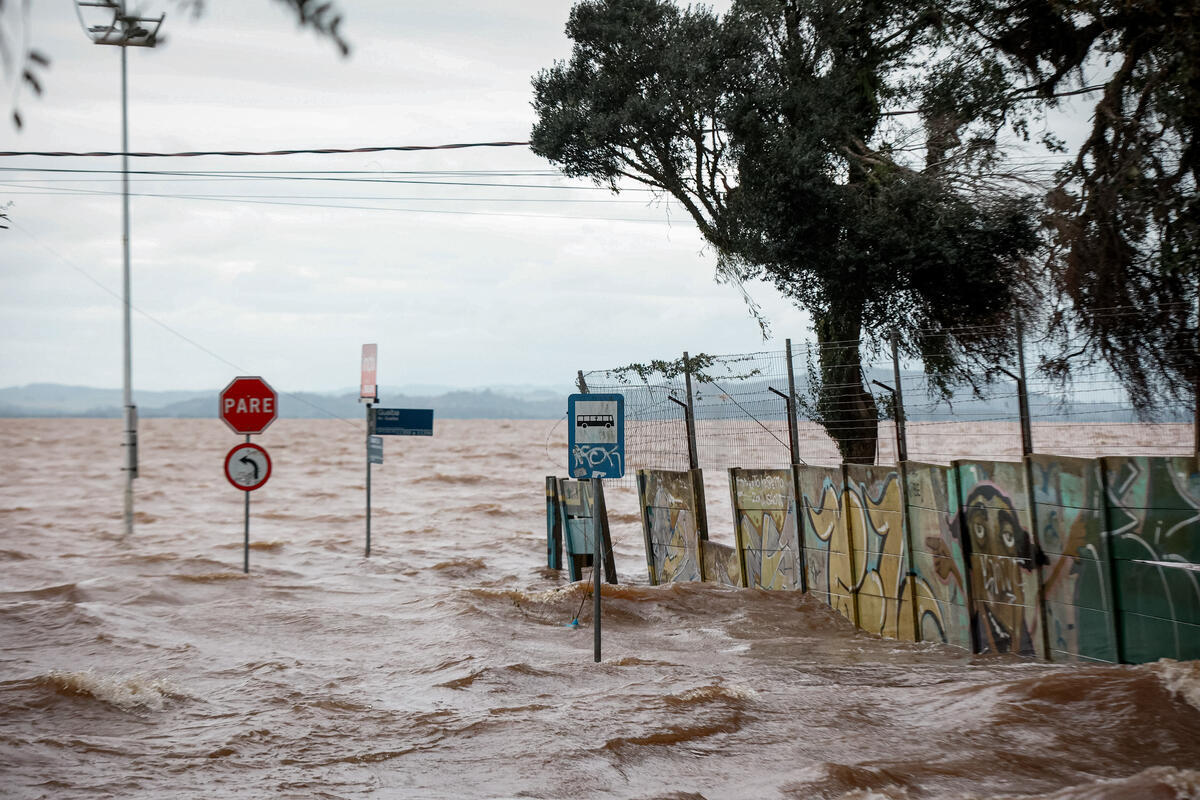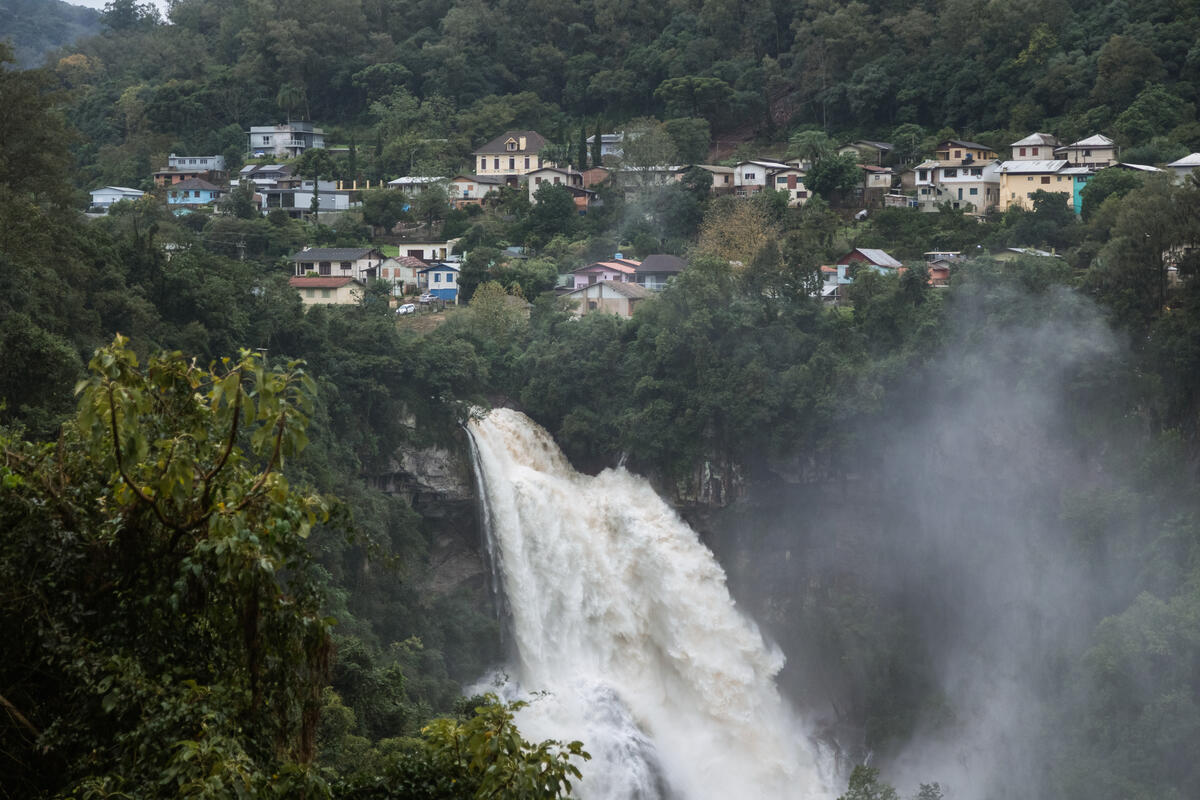This article originally appeared on Greenpeace Brazil's website.
Given the magnitude of the disaster unfolding in Rio Grande do Sul, Greenpeace Brazil is commiting to contribute right now to alleviating the suffering of the people of the state, as well as to continue demanding climate action - with even more strength! - so that tragedies like this do not happen again in the future.
The size of the disaster that struck Rio Grande do Sul in the south of Brazil shocks, saddens and generates indignation. The death toll quickly passed a hundred; even as hundreds more count the injured and those who remain missing. Thousands of people had to leave their homes, children were lost and traumatized, animals drowned or were rescued in dramatic situations, millions of people were impacted. In short, the emergency is palpable, painful and heartbreaking.

At Greenpeace Brazil, we have team members from Rio Grande do Sul, with family and friends in the region, as well as two groups of volunteers in the state - one of them, based in the capital city of Porto Alegre. Since we first received news of the landslides and floods, we have seen an immense network of solidarity forming across the country. Being a part of this movement - whether in welcoming our team, or in providing direct local support - gives us hope that solidarity can be a force for transformation.
Greenpeace Brazil is in direct contact with local organizations and our volunteers in the state to support emergency demands, understanding needs and acting to address them. This translates, for example, into supporting the setting up of solidarity kitchens to prepare lunch boxes, purchasing hygiene products and food, sending a team to the field to support logistics, purchasing and distributing thousands of drinking water filters, and providing support for impacted Indigenous Peoples, among other actions.
To continue growing this chain of solidarity, however, Greenpeace Brazil needs your support! We have already started the emergency aid operation, but its size and impact depend on the number of people we mobilize in this large network. Unfortunately, the impacts of the tragedy are not short-term, and the needs of the people of Rio Grande do Sul are many.

It is important to highlight that 100% of the amount raised in this campaign will be allocated to support actions for victims of the floods in the south of Brazil. You will be able to follow our deliveries, actions in the field, transfers, etc. - with absolute transparency through Greenpeace Brazil's website and social media channels.
It is time for solidarity and Greenpeace Brazil will continue to provide support as long as necessary. If you are in Brazil, please help us increase our capacity to help if you can.
A look to the future
Repeatedly, we have denounced politicians and decision-makers who work to dismantle environmental protection, whether by relaxing the rules for licensing new projects, rolling back existing protections, pushing into permanent protected areas, or stating that expanding oil and gas production in sensitive areas is essential. In short, the list of anti-environment decisions and actions - unfortunately - is immense.
All of this has consequences. It is as if we are creating new disasters with each new law of this type approved in the Legislature, with each sanction by the Executive, with each defeat in the Judiciary.

I repeat: we are creating future disasters instead of acting to reduce the impacts of those experienced in the past and which we can no longer avoid.
Much more is needed for our cities to become safer and more resistant to extreme climate variations and to prevent tragedies like this from recurring. We need to talk about adaptation!
Unfortunately, extreme weather events like the one that is currently plaguing Rio Grande do Sul are becoming more intense and frequent. To face such climate emergencies, we need concrete public policies that aim to adapt cities and create a solid culture of prevention. We are talking about budget, prioritization, seriousness and coordination between the municipal, state and federal spheres in Brazil.

We will only be able to avoid the worst of the climate crisis, which destroys lives and dreams and is cruel especially to those who already live in vulnerable conditions, if we face it responsibly. To achieve this, we need to implement a robust adaptation and mitigation plan, prioritizing a truly fair energy transition.
Know that Greenpeace Brazil will not rest until we win this battle. We hope you will also join this fight, which is fundamental to changing the direction of what we are committing to our own lives. When millions come together, the result - as we are seeing now - is encouraging. May this also be the case in the structural challenges that we will face from now on.
Carolina Pasquali is the Executive Director of Greenpeace Brazil






